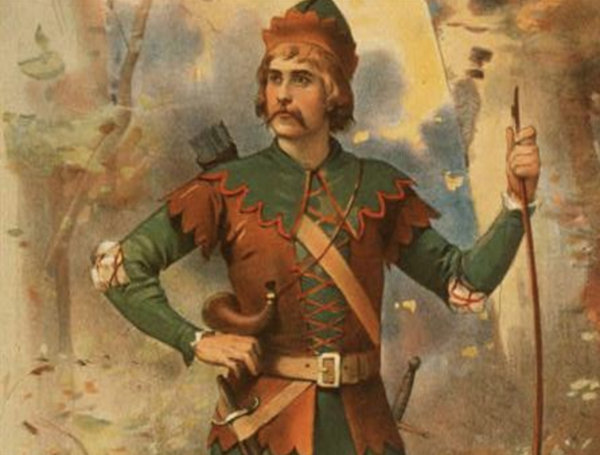Why It's Okay That Children's Classics Lack Diversity
/Children don't think in constructs of race, religion, or color. They learn to think in social constructs as they grow older and begin to recognize different skin colors, to understand different religions, and the different races.
Arrogance, which is really at the root of racism, is something else children learn; and usually they learn it from us.
The reason I even mention this is because it's come up in my discussions with people about literature, and I've been asked about it more times than I like to think. The question usually goes something like this: "Why do you recommend books that are only written by white people?"
I could make better sense of the question if, for instance, I were promoting modern English literature, not the classics, and only included white authors—now that would be suspicious.
But I'm not. And I'm not promoting books written by "only white people." I'm promoting Western classic literature because it's the finest literature we have in the English language, and I want your children to have the best.
“For what are the classics but the noblest recorded thoughts of men.”
Think about it: anytime we deal with the classics from any country or region, the classic canons are written predominantly by the people of that historical region. The Western classics, written mostly by Western people, are no exception.
To dismiss the Western classics because they lack diversity (by the way, not all the Western classic authors were white!) is to do a disservice to your children.
Why?
Because you are depriving them of great children's literature, and you have nothing in English to replace it with. That's not to say the only great stories for kids are the Western classics, only that they are the créme de la créme of English literature.
I don't know of better books than the classics, and I have looked. If you know of any other books written in the calibre of the classics—and for a general audience—please send me the links.
The point I want to make is this: your children do not care. They categorically do not care who wrote the classics. They are too young to care. They haven't been taught to care.
What your children need is literature that will support the acquisition of good language skills with moral lessons. That's the reason I encourage the reading of the classics. That and because they are the books I love and know best.
Sadly, in our public school system, they've removed classic literature and replaced it with substandard literature, some of which may even be in direct contradiction to the beliefs and values you want your children to espouse.
I see the children's books available today and I shudder, literally. I have one now on my bookshelf that I intend to critique called, The Day My Butt Went Psycho! It's from the Andy Griffiths series, some of which is required reading in an Australian public school and may be even here. I only know this because a mom who was consulting with me told me so.
This is the kind of books children are reading today. They're rude. They're disrespectful of parents and authority figures, and they're disrespectful towards others.
Truthfully, I feel embarrassed to even tell you the title; it's so crude, so base, so despicable! It's catering to the worst of who we can be. And this is required reading for kids today.
Your child may be reading books like this and you may be thinking, "Well, at least he's reading." For now, but I doubt he'll become a good reader. He won't develop the skills required to read good books. What's the point in reading if not to gain understanding, insight, knowledge?
Maybe he'll have a turning point in his life as he grows older, but you can't bank on that.
“We have to learn to read in order to learn by reading.”
Few children read great books anymore; great books with great heroes and heroines and lofty ideals. If we want to resume our former glory as a literary people, we have to raise our English speaking children on the Western classics.
The language of the classics is rich with creative syntax, the vocabulary is extensive, the stories tell moral truths, and the children relate to the struggles and moral fortitude of the heroes and heroines.
Reading the classics will produce better writers too.
A little six-year-old girl who's reading Heidi (or having Heidi read to her) is identifying with Heidi's warmth, good nature, optimistic spirit; she's wondering what it's like to be an orphan and live with a grumpy old grandpa, all alone, up in the mountains.
Robin Hood is begging little boys to explore the idea of risking your own life to help those in need; to set a wrong, right; to be brave and powerful—these were the dreams of little boys when little boys grew up reading the classics.
When children are young and when it matters most, they won't stop to concern themselves about what color the skin of their hero is unless we put the thought in their minds. If your children have shown otherwise, then I would ask you to reflect on the conversations you're having that your children may be over hearing.
Children of all colors, all over the world, focus on the universals such as vices and virtues and not on the particulars of race, religion, and color.
Young children are good-hearted and accepting of others, and they aren't yet old enough to understand and to judge, for right or wrong, the differences between themselves and others.
There is a window, however, when they are ripe for acquiring good language skills, and to deprive them of the classics during this time is to err.
“So does a whole world, with all of its greatness and littleness, lie in a twinkling star.”
Your children aren't going to grow up with a psychological complex if you read them books about children who might have a different skin color, but they will grow up having a better understanding of vices and virtues, of right and wrong. They'll also be confident in their language skills and able to read difficult literature.
If you want your children to have not only a fair chance, but a strong chance to get ahead in this world, read your children literature that's earned its place on your bookshelf because of its moral message, its bulging vocabulary, and its creatively and cleverly arranged syntax.
But please don't reject a great child's book, or any book because of the skin color of the person who wrote it!
_______________________________________________________________________
If you would like to become a more competent homeschooler, please join the waiting list for my upcoming course: How to Homeschool the Smart Way.
If you enjoyed this, you might like my free download Ten Books Every Well-Educated Child Should Read.
If you need help with homeschooling, you can schedule a one-hour consultation with me (that's usually all you'll need) http://bit.ly/2GJAZEr














